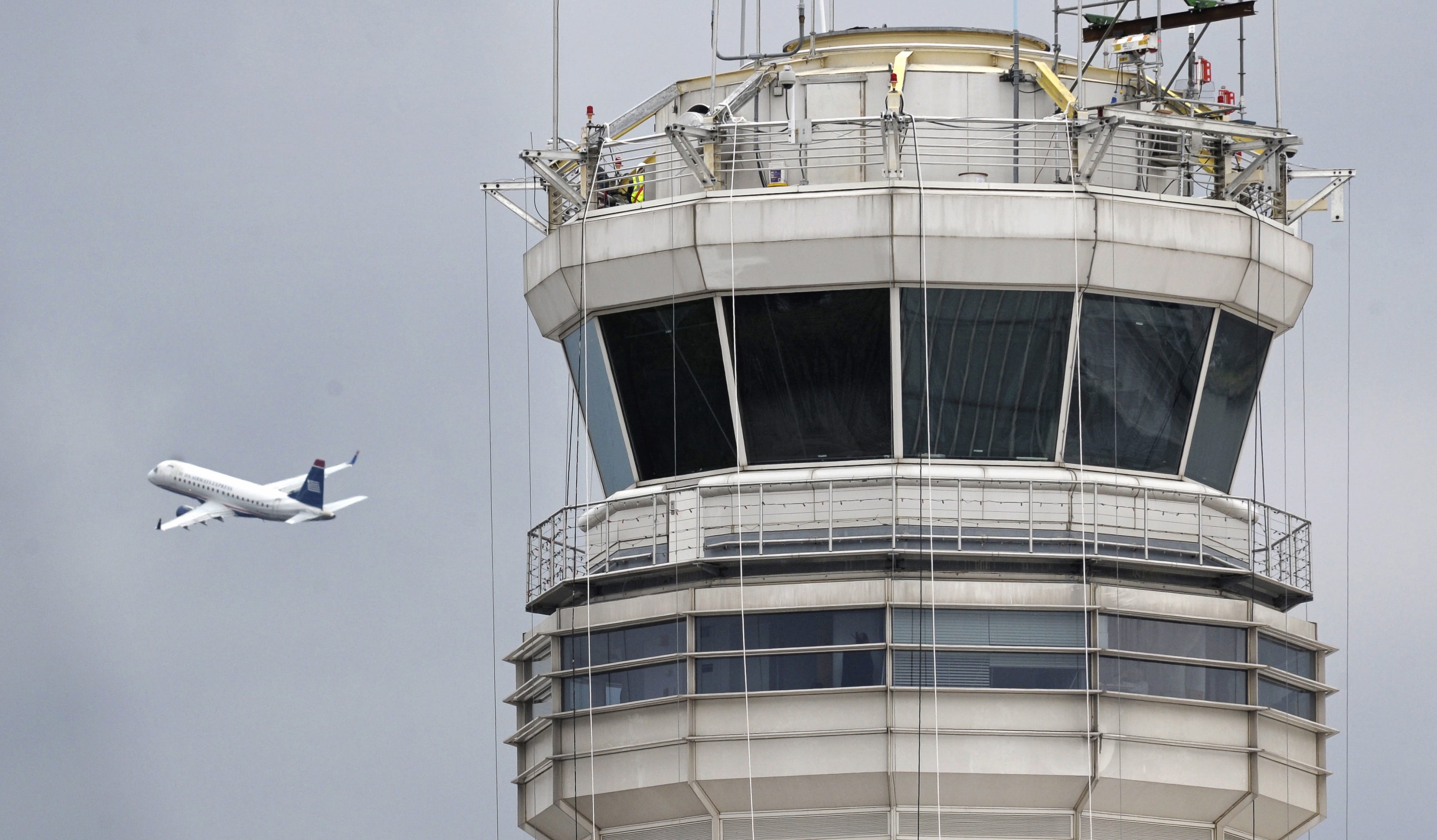WASHINGTON — Air traffic controllers are at greater risk for fatigue, errors and accidents because they work schedules known as “rattlers” that make it likely they’ll get little or no sleep before overnight shifts, according to a government-sponsored report.
Three years after incidents in which controllers were found sleeping on the job, a National Research Council report released Friday expressed astonishment that the Federal Aviation Administration still permits controllers to work schedules that cram five shifts into four 24-hour periods.
The schedules are popular with controllers because at the end of last shift they have 80 hours off before returning to work the next week. But controllers also call the shifts “rattlers” because they “turn around and bite back.”
The report also expressed concern about the effectiveness of the FAA’s program to prevent its 15,000 controllers from suffering fatigue on the job after the program was hit with budget cuts. And the 12-member committee of academic and industry experts who wrote the report at the behest of Congress said FAA officials refused to allow them to review results of prior research the agency conducted with NASA examining how night work schedules affect performance.
An example of the kind of schedule that alarmed the report’s authors begins with two consecutive day shifts ending at 10 p.m. followed by two consecutive morning shifts beginning at 7 a.m. The controller gets off work at 3 p.m. after the second morning shift and returns to work at about 11 p.m. the same day for an overnight shift, the fifth and last shift of the workweek.
When factoring in commute times and the difficulty people have sleeping during the day when the human body’s circadian rhythms are “promoting wakefulness,” controllers are “unlikely to log a substantial amount of sleep, if any, before the final midnight shift,” the report said.
“From a fatigue and safety perspective, this scheduling is questionable, and the committee was astonished to find that it is still allowed,” the report said. The combination of “acute sleep loss” while working overnight hours when circadian rhythms are at their lowest ebb and people most crave sleep “increases the risk for fatigue and for associated errors and accidents,” the report said.
Responding to the report, the FAA said Friday that it is “adding limitations to its shift and scheduling rules.” The FAA didn’t detail the limitations, and FAA officials didn’t immediately respond to a request for clarification.
The National Air Traffic Controllers Association defended the scheduling, citing the 2009 study that hasn’t been publicly released.
In 2011, FAA officials and then-Transportation Secretary Ray LaHood promised reforms after a nearly a dozen incidents in which air traffic controllers were discovered sleeping on the job or didn’t respond to calls from pilots trying to land planes late at night.
Studies show most night shift workers, not just controllers, face difficulties staying awake no matter how much sleep they’ve had. That’s especially true if they aren’t active or don’t have work that keeps them mentally engaged. Controllers on night shifts often work in dark rooms with frequent periods of little or no air traffic to occupy their attention, conditions scientists say are conducive to falling asleep.
The FAA and the controllers union encourage controllers to report errors by promising they won’t be penalized for honest mistakes. The reports are entered into a database that the FAA is supposed to use to spot problems. But controllers are sometimes too busy to file reports, and the report forms don’t seek information on the controller’s schedule or other details that might be used to determine whether schedules are contributing to errors, said Mathias Basner, an assistant professor at the University of Pennsylvania medical school and the sleep expert on the committee.



